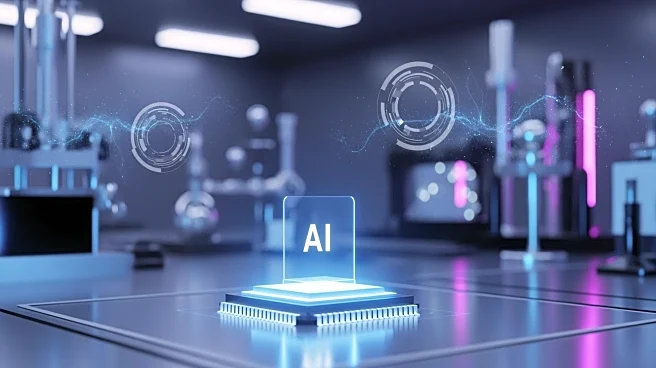What's Happening?
Sunrise New Energy Co., Ltd., a company specializing in graphite anode materials for lithium-ion batteries, has announced the granting of a patent for its AI-driven multivariable particle size control system. This technological innovation addresses challenges
in graphite micro-powder production, such as achieving precise particle size control during grinding and granulation. Traditional methods often result in high waste rates and inconsistent particle distribution. The new system utilizes AI algorithms, real-time data acquisition, and multivariable discrete control to optimize production efficiency. It dynamically adjusts variables like blade rotation speed and fan separation rate, minimizing waste and enhancing energy efficiency. This development marks a significant advancement in intelligent and sustainable production processes within the graphite anode material industry.
Why It's Important?
The patent granted to Sunrise New Energy Co. represents a major step forward in the manufacturing of graphite anode materials, which are crucial for lithium-ion batteries. By improving material utilization and energy efficiency, the AI-driven system could lead to cost reductions and environmental benefits. This innovation positions Sunrise as a leader in the industry, potentially influencing global manufacturing standards. The enhanced production capabilities may also support the growing demand for lithium-ion batteries, driven by the expansion of electric vehicles and renewable energy storage solutions. Stakeholders in the battery manufacturing sector stand to benefit from increased efficiency and reduced environmental impact.
What's Next?
Sunrise New Energy Co. is expected to continue leveraging its patented technology to expand its production capabilities and market presence. The company may seek partnerships or collaborations to further integrate AI-driven systems into other manufacturing processes. As the demand for lithium-ion batteries continues to rise, Sunrise's innovation could attract interest from major industry players looking to enhance their production efficiency and sustainability. Regulatory bodies and environmental groups may also monitor the impact of this technology on industry standards and practices.
Beyond the Headlines
The introduction of AI-driven systems in manufacturing raises questions about the future of industrial automation and its impact on labor markets. While such technologies can improve efficiency and reduce costs, they may also lead to workforce displacement. Ethical considerations regarding data privacy and the use of AI in production processes could become more prominent as these systems are adopted more widely. Additionally, the focus on sustainable production aligns with global efforts to reduce carbon footprints and promote environmentally friendly practices.















